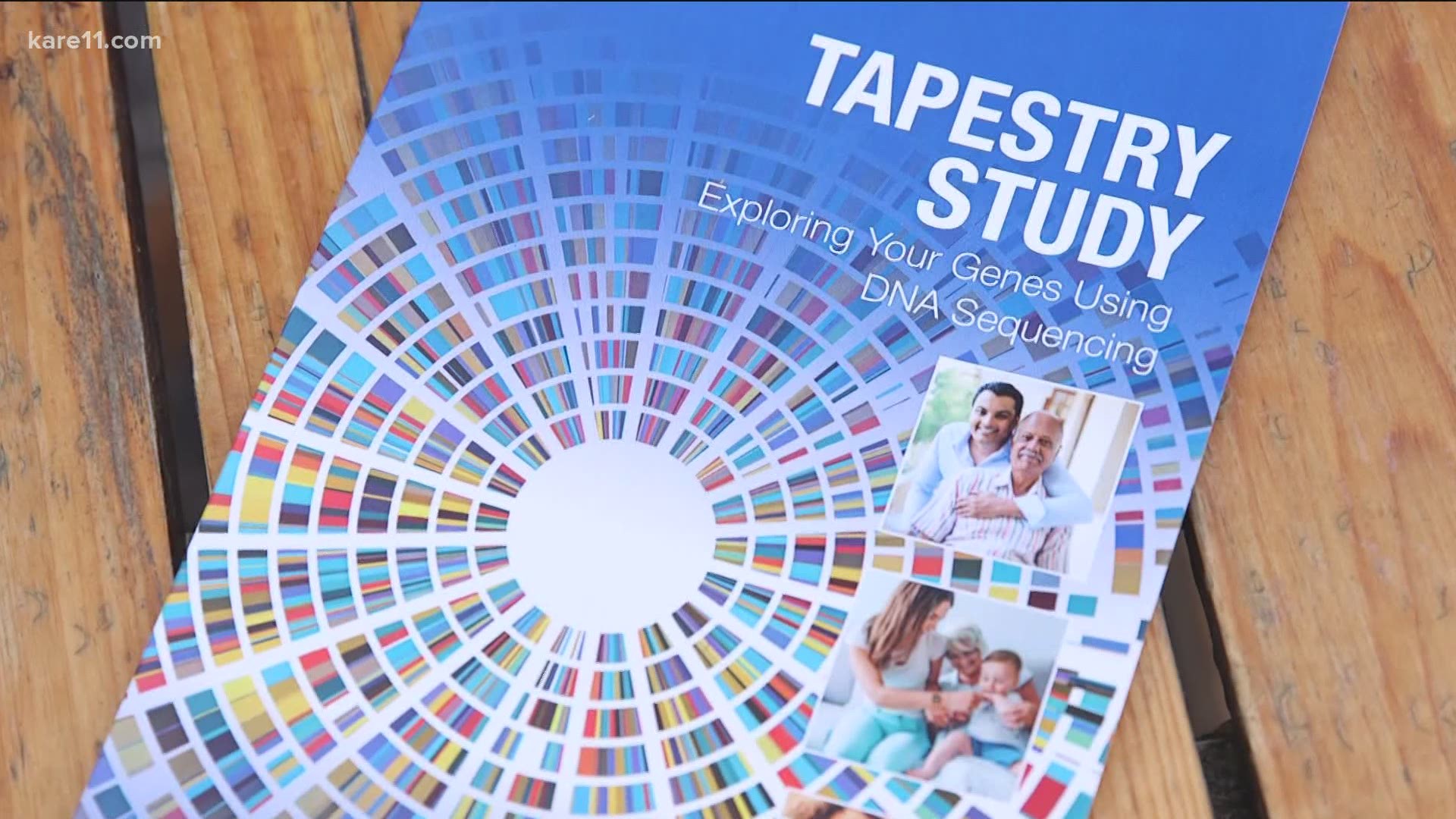MINNEAPOLIS — The Mayo Clinic is expanding on a large genetic research study to help search for answers to one of the biggest questions surrounding COVID-19: Why do some people experience few, if any, symptoms, while others have life-threatening complications?
"I strongly believe that there are some people more susceptible to develop COVID than others," said Dr. Konstantinos N. Lazaridis, Principal Investigator of Tapestry, a DNA sequencing research study being conducted across all Mayo Clinic campuses.
Dr. Lazaridis says they launched Tapestry as a way to screen Mayo Clinic patients for predisposition to rare genetic conditions linked to breast cancer, colon cancer and high cholesterol.
But he says the same DNA saliva sample can be used to understand more about people who test positive for COVID-19.
"A number of patients, they may have minor symptoms and everything goes away, and others have to be hospitalized." Dr. Lazaridis said. "If we better understand the mechanism of how this happens, we can be more effective with our therapies."
Laurel Fischbach recently signed up for the Tapestry study online. She was among the first few Minnesotans diagnosed with COVID-19 after returning from a ski trip to Colorado in the spring. Fischbach says she and all her friends were infected.
"We got it from being in the restaurants in the evening after skiing all day," she said. "They were shoulder to shoulder, packed with people."
But despite everyone having similar exposure, Fischbach says they all had different experiences.
"Everyone had different symptoms," she said. "Some people had GI symptoms that kept them constantly uncomfortable and in the bathroom. Some people's symptoms were so severe that for an entire week they had no energy to get out of bed. There were, I think, about four of us who ended up getting pneumonia with it. There was one person in the group, never had a symptom."
Dr. Lazaridis believes Tapestry could help find out why.
"We know, for example, from studies in the last six months or so, that particular blood groups, they have a higher risk of developing COVID compared to others," he said. "For example people with group A, blood (type) A, they have a higher tendency to develop more severe disease compared to those that have group O."
Laurel is in that type O group, and has since donated plasma to help other patients. She views the Tapestry study in a similar way.
"This is my way to give back and to help further the study," Fischbach said. "This is all about finding answers. Anything to stop this virus and get rid of it, squash it."
Anyone who has tested positive for COVID-19 in the Mayo Clinic System is eligible to take part in this study, free of charge, whether you have symptoms or not. Click here for more information.
"The advantage that we have with the Tapestry study is that we do all of the recruitment electronically," Dr. Lazaridis said. "We provide them with a video about the goals and expectations of the study, so we don't have to have face to face contact with the patient. The collection of our specimens is through mail so it can all be done from home."

